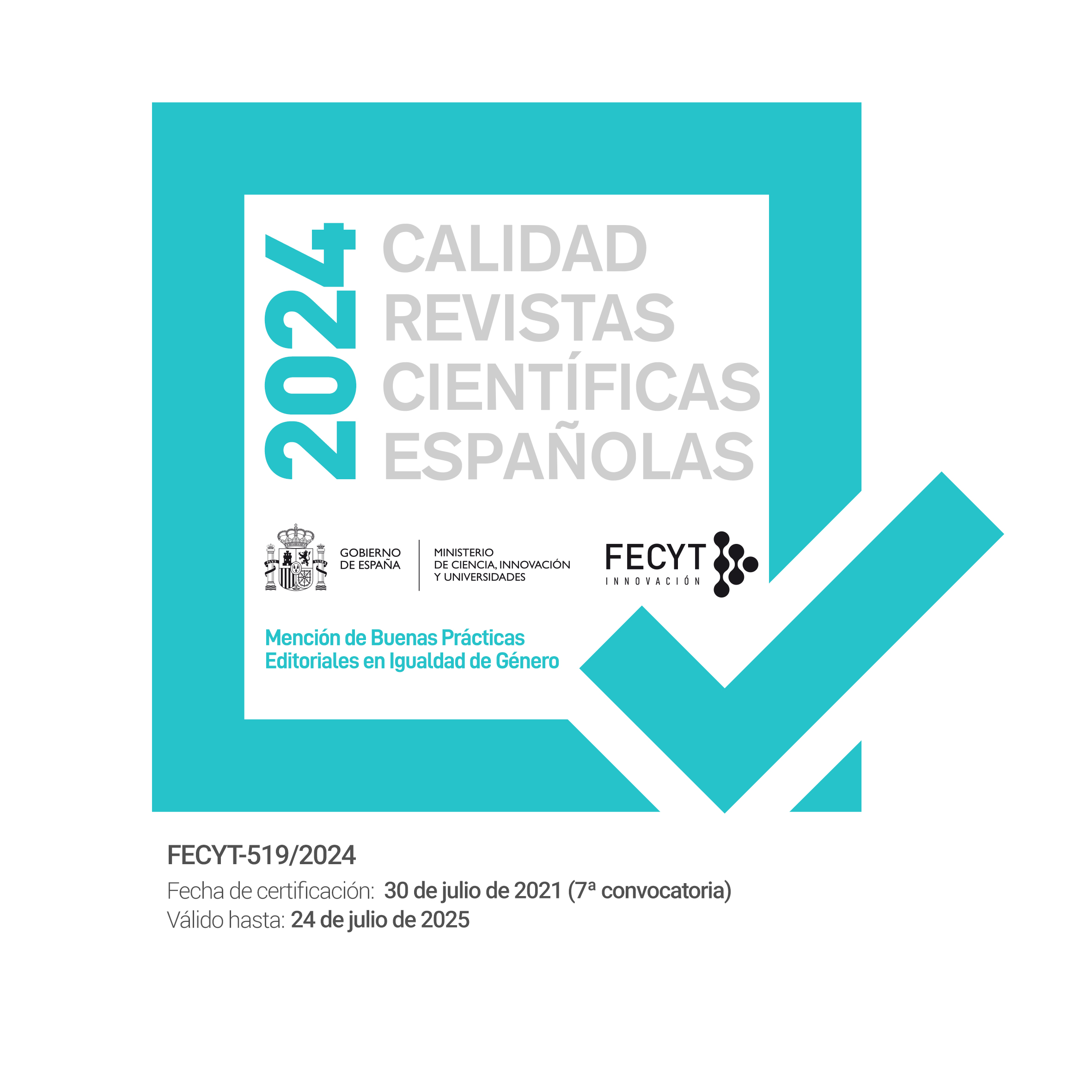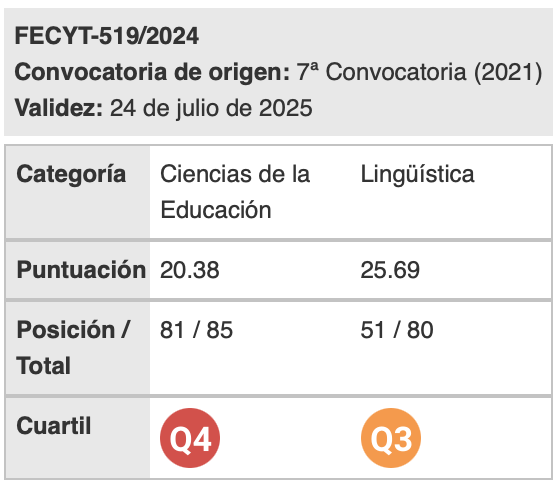Asian Borrowing in Commercial and Scientific Modern English
Palabras clave:
Asian, borrowing, commercial, scientific, Modern EnglishResumen
The main aim of this paper is to show the introduction of Asian loanwords in commercial and scientific Modern English. There are several reasons why English speakers might want to adopt a foreign word. The simplest one is that the word is the name for something new, which is often the case in the eighteenth and nineteenth centuries. The definitions and etymologies of the loanwords selected together with the date and work where they are first registered are extracted from the OED.
Descargas
Citas
Bernárdez Sanchís, E. et al. (2001). Lingüística histórica inglesa. Barcelona: Ariel.
Berndt, R. (1989). A History of the English Language. Leipzig: Verlag Enzyklopädie.
Blake, N. F. (1996). A History of the English Language. London: Macmillan.
Fennell, B. A. (2001). A History of English: A Sociolinguistic Approach. Oxford: Black- well.
Görlach, M. (1999). English in Nineteenth-Century England: An Introduction. Cambrid- ge. CUP.
Katamba, F. (1994). English Words. London & New York: Routledge. Millward, C. (1996). M. A Biography of the English Language. Orlando, Forida: Holt,
Rinehart & Winston.
Smith, J. J. (1999). Essentials of Early English. London: Routledge.
The Compact Edition of the Oxford English Dictionary Oxford: OUP. 3 vols, 1971. The Oxford English Dictionary Oxford: OUP. CD-ROM, 1992.
Trask, R. L. (1994). Language Change. London & New York: Routledge.
Descargas
Publicado
Cómo citar
Número
Sección
Licencia
Aquellos autores/as que tengan publicaciones con esta revista, aceptan los términos siguientes:
- Los autores/as conservarán sus derechos de autor y garantizarán a la revista el derecho de primera publicación de su obra, el cuál estará simultáneamente sujeto a la Licencia de reconocimiento de Creative Commons que permite a terceros compartir la obra siempre que se indique su autor y su primera publicación esta revista.
- Los autores/as podrán adoptar otros acuerdos de licencia no exclusiva de distribución de la versión de la obra publicada (p. ej.: depositarla en un archivo telemático institucional o publicarla en un volumen monográfico) siempre que se indique la publicación inicial en esta revista.
- Se permite y recomienda a los autores/as difundir su obra a través de Internet (p. ej.: en archivos telemáticos institucionales o en su página web) antes y durante el proceso de envío, lo cual puede producir intercambios interesantes y aumentar las citas de la obra publicada. (Véase El efecto del acceso abierto).

Revista de Lenguas para fines específicos is licensed under a Creative Commons Reconocimiento-NoComercial-SinObraDerivada 4.0 Internacional License.






















